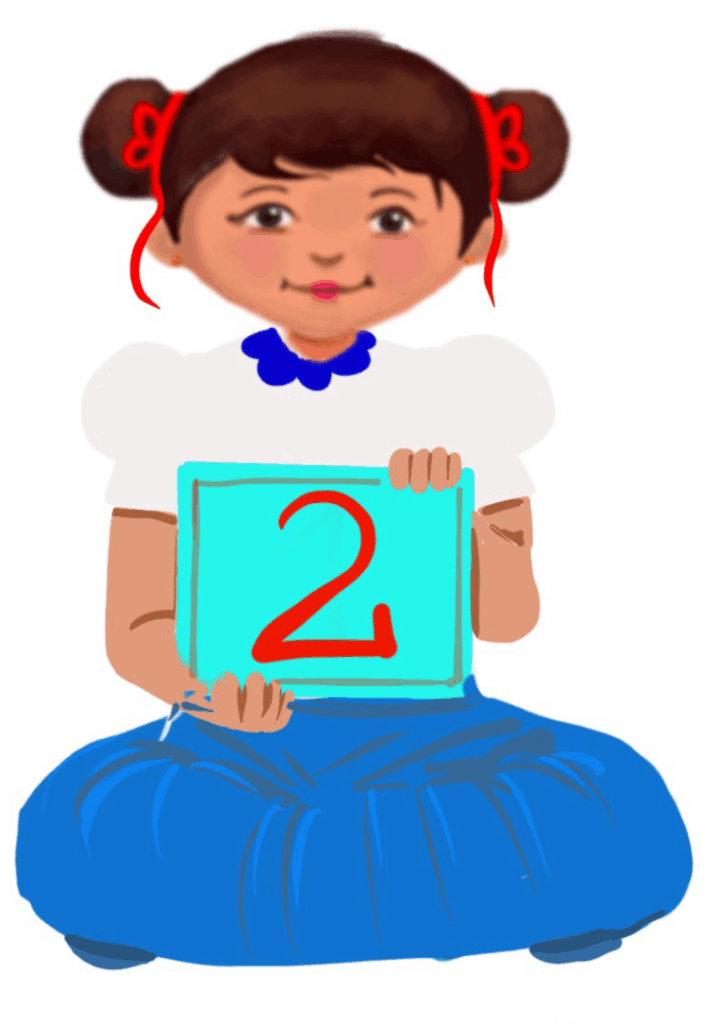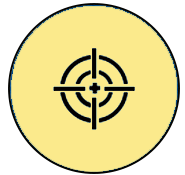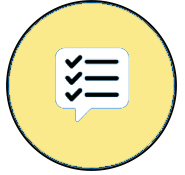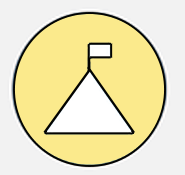
Fun with Paint
Class 2
 Objective
Objective
Students will be able to use the simple tools of the MS Paint program.
 Prerequisites
Prerequisites
i) The children should know what a computer is and the parts of the computer.
ii) Students should have developed good motor skills to control the mouse well.
iii) Students should know
a) how to open the MS Paint program.
b) how to minimise, maximise, and close any window.
c) how to drag and drop using mouse.
d) have basic understanding of keyboard.
 Goal
Goal
All
All children will be able to recognise the tools of the MS Paint program.
Some
Some children will be able to use a few tools of the MS Paint program.
Few
Few children will be able to use all the tools of the MS Paint program.
Operational Definition
All – This gives the goal, which is the minimum that the teacher must achieve for all students in the classroom.
Some – This gives the goal that the teacher may try to achieve for some students in the classroom who can achieve the suggested goal over and above the goal stated for ‘All’.
Few – This gives the goal that the teacher may try to achieve for few students in the classroom who can achieve the suggested goal over and above the goal stated for ‘Some’ and ‘All’.
Materials Required:
Technology
- An audio-enabled computer with an internet connection, smartboard projector and screen.
- All devices like laptops, tablets and desktop computers with accessibility features enabled.
- Screen readers like JAWS and NVDA.
- Large keyboards, built-in screen magnifiers, hearing aids, text-to-speech and speech-to-text software.
- Voice recognition software like Siri, Windows Speech Recognition, etc.
- Headsets.
- Student writing or typing tools.
Teacher Materials
- Whiteboard and markers or blackboard and chalk.
- Colourful visual aids (e.g. posters of MS Paint toolbar), Picture Cards and Worksheets.
- Lesson videos.
Student Handouts
- Handout 1: Yes or No Cards
- Handout 2: Thumbs Up and Down Card
- Handout 3: Colourful visual aids (e.g. posters of MS Paint toolbar)
- Handout 4: Worksheets
Print Preparation
The teacher will print, copy or laminate (wherever applicable):
- Thumbs up and Thumbs down Card for students
- Yes or No Cards for students
- Worksheets for students
- Colourful visual aids (e.g. posters of MS Paint toolbar)
Preparation for the Activity:
- All the learning and teaching materials needed for this lesson plan must be ready before the lesson begins.
- Ensure that there are enough copies for all children. Multiple copies can be made by photocopying too.
- Please have the assistive technologies and accessibility features ready for your inclusive classroom.
Setup for transacting the lesson:
This topic must be taught in the computer lab.
1. Expected Prior Knowledge
Awareness of the extent of student’s prior knowledge of the topic will help the teacher plan and deliver the lesson appropriately.
This could be assessed by asking each student to open the MS Paint program on their computer systems.
LTM: Paint Tools Windows 10 Poster
LTM: Paint Tools Windows 10 Horizontal Poster
LTM: Enlarged Paint Tools Windows 10 Poster
LTM: Paint Tools Windows 11 Poster
LTM: Paint Tools Windows 11 Horizontal Poster
LTM: Enlarged Paint Tools Windows 11 Poster
LTM: Paint Art Tools Vocabulary with Picture Cards Windows 10
LTM: Paint Art Tools Vocabulary with Picture Cards Windows 11
2. Warm-Up
Write the word ‘tools’ on the board.
1. What is the first thing that comes to your mind when you hear the word ‘tools’?
Possible Answers: hammer, brush, pencil, etc.
2. Ask, “What do you see on a MS Paint page?“
Possible Answer: Colours, drawing area, eraser, brush, pencil
Differentiation
- Students can write down answers in their notebooks or on a slip of paper and stick it on the corkboard.
- Students can choose to write their answers or communicate their responses verbally with a friend/teacher.
- Students can draw the word or point to the picture on the Communication Card (a Communication Card handout should be provided).
- The teacher should immediately praise the student with her/his name and reward the child.
LTM: Thumbs Up and Down
LTM: Yes or No Cards
3. Using Pencil and Eraser in MS Paint
Aim: To draw using the pencil and eraser tool on MS Paint.
Prerequisite: Demonstrate basic mouse skills (click, drag, select)
Resources Required:
i. A computer for each child.
ii. MS Paint program installed on the computer
iii. Video with instructions or handouts on the steps to use the pencil and eraser tool on the computer.
Procedure:
1. The students have to sit at their respective computers.
2. The teacher has to explain to the students that each of them will be using the computer to draw pictures.
3. The teacher demonstrates to the students the use of the pencil and eraser tool by drawing and erasing an image (A few examples are shown in the video and the pdf). The teacher shows the students how to change the colour, the size of the line and the size of the eraser using the pencil tool.
4. Left-click on the pencil tool in the tools group.
5. Choose a colour for the pencil in the colours group.
6. Move the pointer to the drawing area. Keeping the left-button on the mouse pressed, move the mouse to start drawing.
7. To erase any part of the drawing, left-click on the eraser tool in the tools group.
8. Move the pointer to the drawing area. Keeping the left-button on the mouse pressed, drag the mouse pointer over the part of the picture you want to erase.
9. The teacher can ask the students to use their creativity and imagination to create different images and allow them to create their own.
Observation: The students come up with different images.
Conclusion: This activity will allow the students to select the pencil and the eraser from the MS-Paint program and come up with images.
Video: Using Pencil and Eraser in MS Paint
Video: Using Pencil and Eraser in MS Paint ISL
Video: How to Save in MS Paint
LTM: Paint Tools Picture Cards with Meaning
4. Painting is Fun
My dear friend, Paint,
You are simple to learn,
With you, my artwork is fun.
Your tools are easy; thanks a ton!
Pencil, brush, eraser and fill, all in one.
With a click and a drag, I can create,
A picture that’s truly great!
Video: Painting is Fun
Guided Watching
Bring children’s attention to the screen to watch the song.
Ask students to give a thumbs up whenever they hear or see the words tools, paint, or brush, in the video.
Play the video
Video: Painting is Fun with ISL
LTM: Painting is Fun Poster
LTM: Enlarged Painting is Fun Poster
Instructions to the Teacher:
To integrate the poem as an activity, please be guided by the steps given below.
Read the poem:
Display the poster of the poem or provide the copies and read it aloud to the class. Encourage students to follow along.
Discussion:
Ask the students which tools from the poem they remember using in MS Paint.
Discuss how they feel about using MS Paint and creating their own pictures.
Creative Expression:
Have students draw a picture in MS Paint using the tools mentioned in the poem. They could use their favourite tool/tools, create a fun drawing, or share their feelings about using MS Paint.
Post Activity questions
1. What is the poem about?
The poem is about the program Paint.
2. Which tools are mentioned in the poem?
The tools mentioned are the pencil, brush, eraser and fill.
3. Why does the poem thank Paint?
The poem thanks Paint for making artwork fun and easy.
4. How can you create a picture in Paint according to the poem?
You can create a picture by using the tools and clicking and dragging the mouse.
5. Let’s Draw Shapes Using MS Paint
Aim: To select, draw and fill in the colour in the shape.
Prerequisite: Children should have developed fine motor skills.
Resources Required:
A computer for each child.
MS Paint program is installed on the computer.
Video with instructions or handouts of the steps to draw the pictures independently.
Procedure:
1. The students have to sit at their respective computers.
2. The teacher has to explain to students that each will be using the computer to draw pictures.
3. The teacher demonstrates to the students how to select a shape and fill the shape with the colour. (A few examples are shown in the video).
4. To select any shape from the shapes group, move the pointer to the drawing area, then left-click and hold the mouse button while dragging the pointer to draw the shape.
5. To fill the shape with the colour, select the ‘fill tool'(paint bucket) icon and choose the colour that you wish to use.
6. The teacher can ask the students to use their creativity and imagination to come up with different pictures.
Observation: The students come up with different shapes and images.
Conclusion: This activity will allow the students to select the shapes, draw them and fill the shapes with colours.
Video: Let’s Draw Shapes Using MS Paint
Video: Let’s Draw Shapes Using MS Paint with ISL
Video: How to Save in MS Paint
Notes to the teacher:
The teacher can open the MS Paint window and ask the students to draw pictures using the tools in the ‘Shapes’ group.
Drawing pictures on a computer will also help the students strengthen their mouse-handling skills.
Informal Assessment (After playing the videos)
Write the question and definition on the board after student responses.
1. Ask, “Do you use an eraser to erase a mistake while drawing?” (The answer is yes)
2. Ask, “Do you see all the colours in the colour box?” (The answer is yes)
3. Ask, “Does your hand get dirty when painting on the computer?” (The answer is no)
4. Ask, “Do you see different shapes in the shape box?” (The answer is yes)
5. Ask, “Can you draw anything on MS Paint?” (The answer is yes)
Worksheet: Informal Assessment
Wordwall: Labelling the Parts of a MS Paint Window
6. Adaptations and Modifications – MS Paint
7. Assessment
Worksheet: MS Paint Yes or No
Enlarged Worksheet: MS Paint Yes or No
Worksheet: Cut and Paste
Enlarged Worksheet: Cut and Paste
8. Assistive Technologies and Adaptive Devices
Assistive Technologies and Adaptive Devices
Teacher Resource Document
| Source and Attribution of images: All images used in the above Assets and Aids are originally created. |
| This digital material has been developed by the Sri Sathya Sai Vidya Vahini Inclusive Education, a unit of Sri Sathya Sai Central Trust, Prasanthi Nilayam, as a collaborative offering in the service of our nation. |